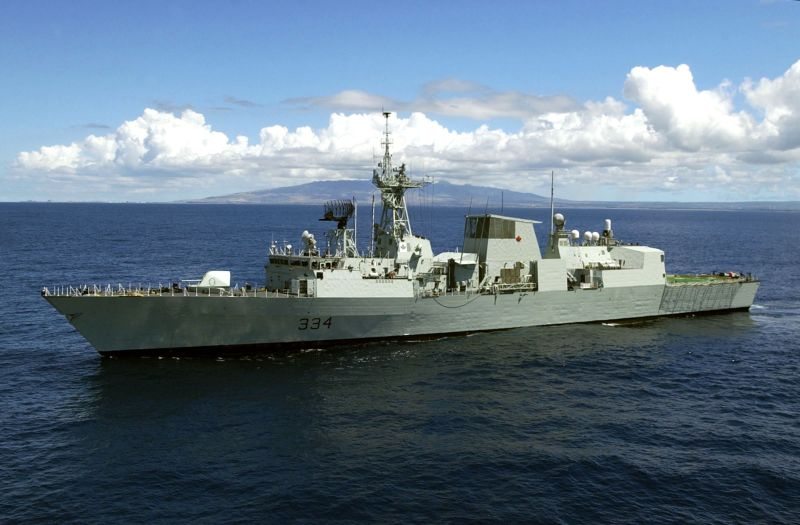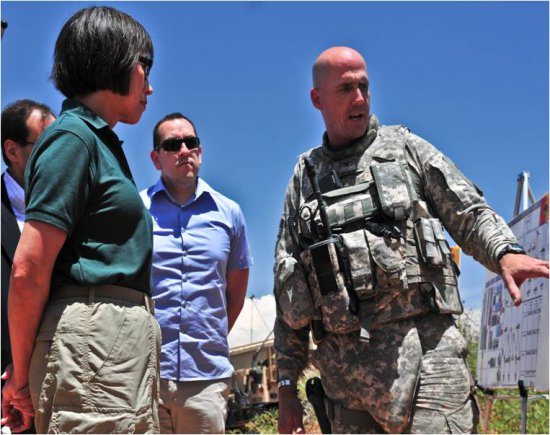The Royal Canadian Navy (RCN) has undertaken a series of actions to transform and streamline the navy’s organizational structures and processes. The intended goal of these initiatives, which support the overall Department of National Defence and Canadian Forces (DND/CF) Transformation efforts, is to ensure the RCN is structured to operate efficiently and effectively, today and tomorrow.
These initiatives will reduce overhead, and achieve staffing efficiencies with the reassignment of existing Regular and Reserve Force members, and civilian employees, into high-priority activities. This will be accomplished by grouping similar functions, from the strategic to the tactical level, through a series of measured changes to the RCN’s internal organization. The primary focus is on eliminating redundancies and duplicate structures. Overhead will be reduced by creating single national authorities for key process and activities.
Navy Transformation will enable the RCN to deliver on the concurrent modernization and renewal of the navy’s fleet, the training of the new sailors, and the ongoing conduct of operations. These initiatives are aligned with the CF Transformation report, which recommends the rationalization of the RCN Force Generation (FG) Structure. FG is the process of organizing, training, and equipping forces for the application of military means, called Force Employment (FE), in support of strategic objectives.
Navy Transformation Initiatives
- Directorate Canadian Submarine Force (DCSF): The RCN has created a single point of responsibility for submarine FG, sustainment, and operational efforts. The responsibility of the DCSF is to enable the RCN to generate, manage, and operate assets (personnel and platforms) of the Canadian Submarine Force into a sustainable pan-naval submarine capability. This authority will be resident in Maritime Forces Pacific (MARPAC), in Esquimalt, B.C.
- Consolidation of the naval schools: The RCN’s five naval schools, currently under three separate management authorities, are being consolidated through the creation of an integrated Naval Training System, which will be operating under a single authority designated as the Commander Naval Training System (CNTS). The five naval schools are the CF Naval Operations School and the CF Naval Engineering School in Halifax, the Naval Officers Training Centre Venture and the CF Fleet School in Esquimalt, and the CF Fleet School in Québec City.
- Personnel Coordination Centres (PCC): Resident in both MARPAC and Maritime Forces Atlantic (MARLANT), in Halifax, N.S., PCCs will be brought under a single authority, and centrally controlled to better manage the efficient use of military personnel. This will ensure that the RCN optimizes the benefits from the employment and training of the right sailor, with the right qualification, and the right experience at the right time.
- Single Fleet Scheduling and Readiness Management Authority: The duplication of certain functions currently held at both MARPAC and MARLANT will be consolidated through the creation of a single Fleet Scheduling and Readiness Management Authority, tasked to coordinate fleet schedules, and overall readiness standards and processes on a pan-navy basis. This authority will be resident within MARLANT.
- Maritime Component Commander (MCC): The role of the national MCC will be formalized, and complement the regional MCCs already well-established in both MARLANT and MARPAC to advise and support the Operational Commands (Force Employers) on all aspects of the command and control of deployed naval assets on international missions. The national MCC will also establish and maintain key relationships with the Strategic Joint Staff, 1 Canadian Air Division, and other Operational Commands. Regional MCCs will continue to command naval assets on national tasks within the respective area of responsibility, as is the practice today. This national MCC will be resident within MARLANT.
- Directorate New Capability Introduction (DNCI): A new directorate will be created to serve as the primary point of contact for coordinating the introduction of new platforms and systems into service. The creation of DNCI will be the key to a centrally managed, focussed effort in support of new capability introduction (e.g. Halifax-Class Modernization, Arctic/Offshore Patrol Ships, Joint Support Ships). This capability will be resident within MARPAC and will work with the existing structures/detachments already resident in Halifax, N.S., and Victoria, B.C.
Navy Transformation is in keeping with the recommendations of the CF Transformation report. It will allow the RCN to streamline its corporate functions, maximize its operational output, and increase the integration of key processes. Ultimately, these changes are part of a continuous series of improvements to ensure that the RCN is prepared to respond to the needs of Canada for today, and tomorrow.











